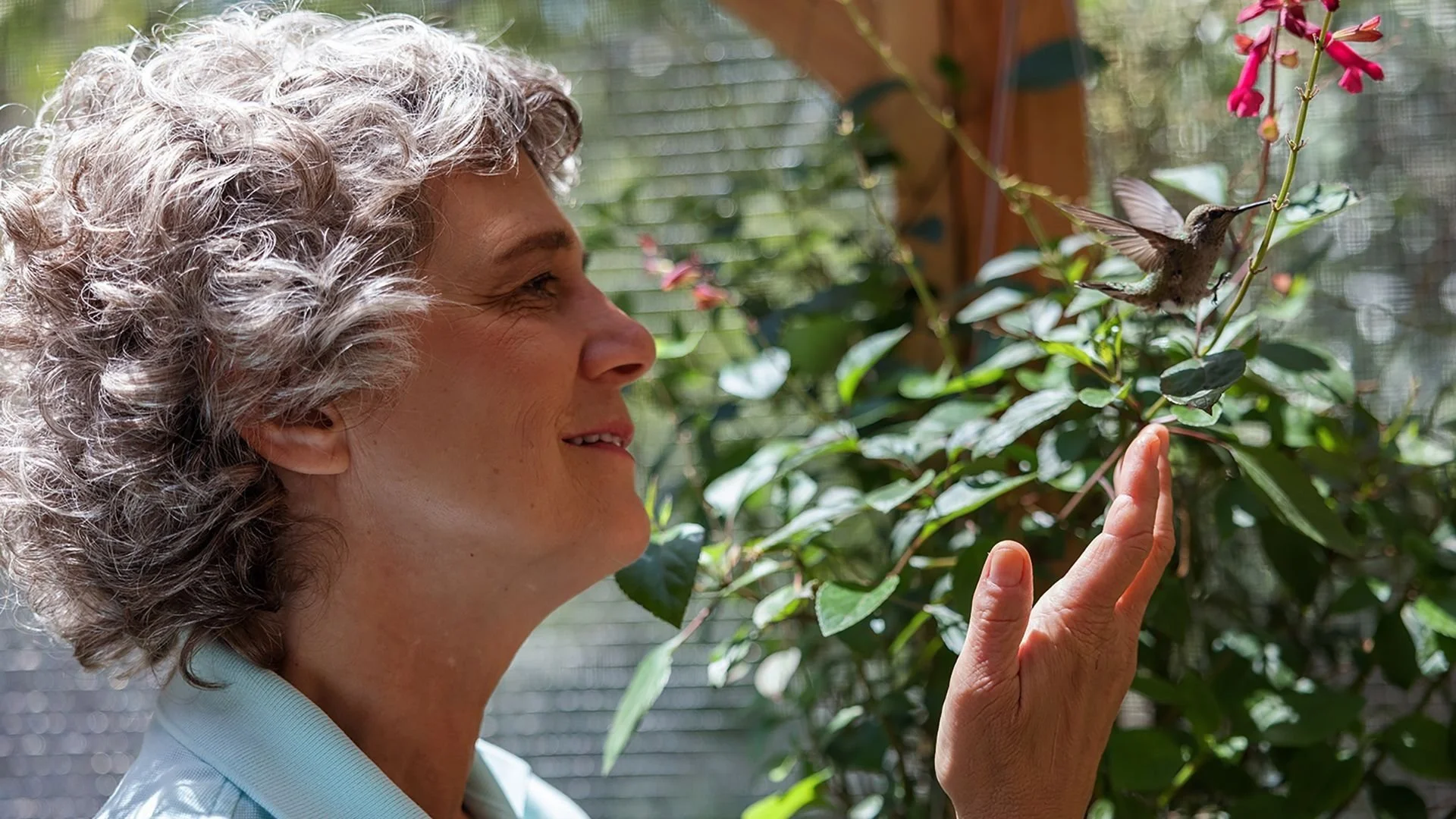EVERY LITTLE THING gives audiences a kind glimpse into a small world
Every Little Thing
Written and Directed by Sally Aitken
Starring Terry Masear
Unrated
Runtime: 1 hour, 33 minutes
In theaters January 10 in New York and January 17 in Los Angeles
by Megan Robinson, Staff Writer
Hummingbirds are delicate creatures. Hummingbirds are warriors. Hummingbirds are still mysterious to us, animals that we can care for, and yet there’s so little we know about so many of their intricacies. Terry Masear, author of Fastest Things on Wings: Rescuing Hummingbirds in Hollywood, has dedicated much of her time to rehabilitating young, injured, and/or abandoned hummingbirds in California, fostering independence in the small, brilliant creatures that must depend on her to survive. All of this is captured in Sally Aitken’s beautiful documentary Every Little Thing, which aims not only to hold a magnifying glass to the small birds most people rarely think about but also to understand why caring for these creatures can make better people of us all.
Every Little Thing opens with intercut footage of Masear driving with one of the many hummingbirds she cares for along with flowers blooming and hummingbirds flying, their wings moving 50 times a second while their heads seem miraculously locked in place. A voiceover explains that spring is hummingbird season in Los Angeles, which also means Masear is getting dozens of calls a day from concerned citizens finding hummingbirds in need of care. A few of these people become the only other human subjects in the documentary but only appear in short scenes, leaving the focus on Masear and the hummingbirds. The scope is small, with the only setting being Masear’s Los Angeles Hummingbird Rescue center. She wakes up at dawn and spends as much time as she can feeding, cleaning, and bonding with these birds as possible.
This might feel like a secluded premise for a documentary, but Aitken’s film makes crowning achievements out of 1-inch jumps with a broken wing or going from a weight of 2 grams to 4 grams. The hummingbirds are not just memorable, each of them going on their own healing journeys, but Masear is a worthy subject for such a documentary. Aitken never unloads an extraordinary amount of background on Masear, instead allowing her to share what she feels comfortable with. More often than not, Masear’s actions speak for her: even when a bird only has, in her opinion, a 10% chance of surviving, her gentleness never wavers as she pulls out all the stops, like the “magic wand” of tree branches, never quitting the healing process.
Intimate cinematography ties together Masear’s delicate methods with a world that allows the audience to meet Masear’s “wild friends” at their level. Directors of photography Nathan Barlow and Dan Freene get up close to Masear, portraying the minute details of feeding young hummingbirds or the stitches of crochet nests for the babies. It’s Wildlife Cinematographer Ann Johnson Prum, however, that truly captures the otherworldly beauty of the hummingbirds in action. Many of the birds Masear works with begin as stationary, due to various injuries or even abuses suffered or because they were found so young that they cannot fly, let alone feed themselves. When they move from smaller to larger cages, their progress is measurable and impressive; when they begin to truly fly–which hummingbirds do in an entirely unique way compared to other birds as they hover, fly vertically, and buzz like insects–it’s ethereal.
Every Little Thing gives the audience a kind glimpse into the small world of hummingbirds. Masear is, just as well, a fascinating subject that is never idolized but wonderfully explored as just one woman who cares about the natural world. She has coarse words for those who refuse to understand the gravity of their actions. Masear, and the film, understand that a lack of care for a hummingbird can be a microcosm for how people behave in the real world—if we do not care for the most fragile among us, how caring can we truly be? As Masear says, “When you show compassion and you show love for something that you don’t have to, it’s an act of greatness,” and Aitken’s film is a showcase not only of acts of greatness, but how we ourselves can achieve such greatness.
Support MovieJawn Staff
〰️
Support MovieJawn Staff 〰️
With the death of so much print media and meaningful journalism, it is important now more than ever to support the writers and outlets you love. If you enjoyed this article, show your support by donating to our writer. All proceeds go directly to the writer. Recommended donation is $5.




